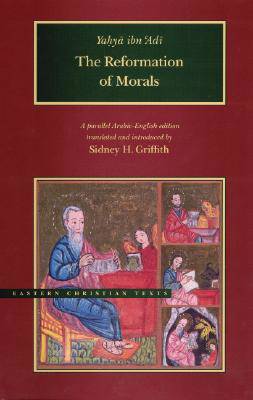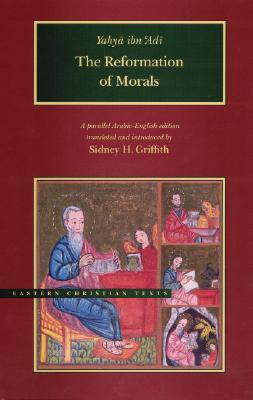
- Afhalen na 1 uur in een winkel met voorraad
- Gratis thuislevering in België vanaf € 30
- Ruim aanbod met 7 miljoen producten
- Afhalen na 1 uur in een winkel met voorraad
- Gratis thuislevering in België vanaf € 30
- Ruim aanbod met 7 miljoen producten
Zoeken
Omschrijving
Under the title The Reformation of Morals, the tenth-century Syrian Orthodox scholar Yahya ibn 'Adi offered encouragement to the effort to promote moral perfection, especially among kings and other members of the social elite: his tract, on the social virtues and vices, gives extensive advice about the cultivation of the former and the extirpation of the latter. Where there are many echoes of Hellenistic moral philosophy in his presentation, the topical profile of the work and the language the author uses reveal his participation in the Baghdad circle of philosophers and intellectuals--both Christian and Muslim--who were responsible for much that has come to be regarded as typical of the classical culture of the Islamic world. In fact, this text has occasionally been attributed to one or another famous Muslim author. It now stands as an important Christian contribution, in Arabic, to a strand of moral philosophy that is an integral component of the intellectual tradition of the world of Islam.
Specificaties
Betrokkenen
- Auteur(s):
- Vertaler(s):
- Uitgeverij:
Inhoud
- Aantal bladzijden:
- 192
- Taal:
- Arabisch, Engels
- Reeks:
Eigenschappen
- Productcode (EAN):
- 9780934893695
- Verschijningsdatum:
- 1/10/2002
- Uitvoering:
- Hardcover
- Formaat:
- Genaaid
- Afmetingen:
- 152 mm x 240 mm
- Gewicht:
- 485 g

Alleen bij Standaard Boekhandel
+ 101 punten op je klantenkaart van Standaard Boekhandel
Beoordelingen
We publiceren alleen reviews die voldoen aan de voorwaarden voor reviews. Bekijk onze voorwaarden voor reviews.











